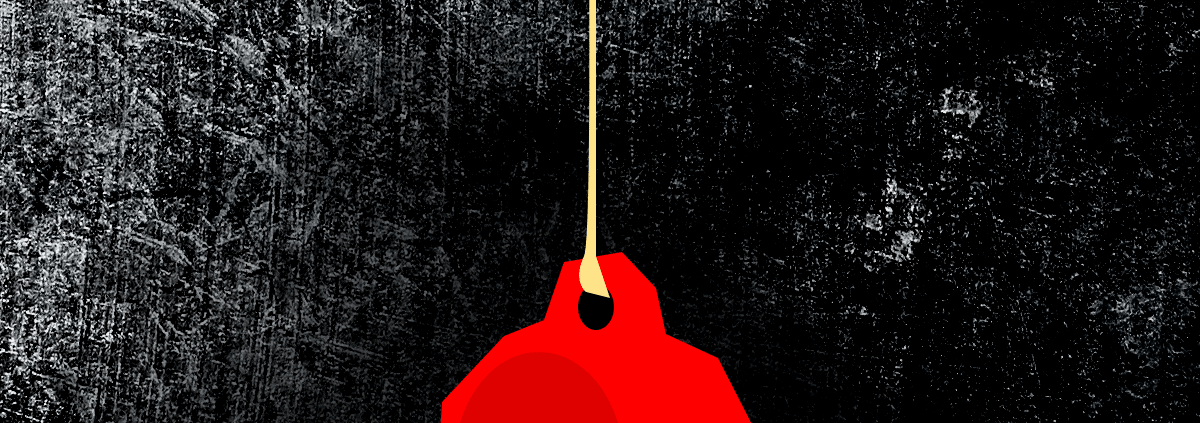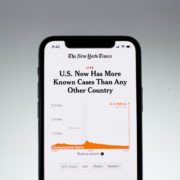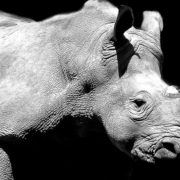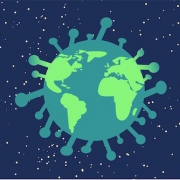Why Do People Become Whistleblowers?
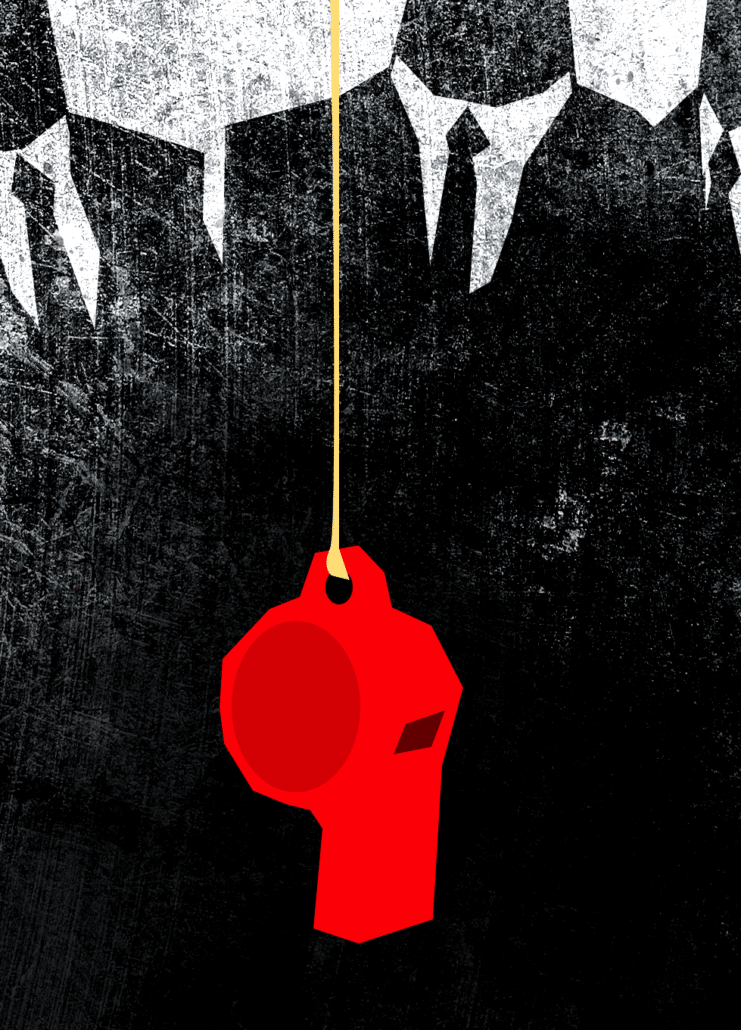
Listening to one of our latest episodes on Breaking the Fever—our podcast in partnership with Preventable Surprises—I was struck by the acuity of one remark in particular. It was about the mind of a whistleblower, the motivations and sense of identity at play.
In retrospect, it wasn’t so surprising to hear. Our interviewee, the entrepreneur and author Margaret Heffernan, is sharp on psychology. In her new book, Uncharted: How to Navigate the Future, she squarely discusses how we think about the future in terms of Darwinian tendencies. “Our brains have evolved to anticipate whether we’ll like this food, this person, that book,” she writes. “Apps train us to expect accuracy in plotting routes, choosing hotels, restaurants, and lovers with levels of confidence our ancestors never imagined. We have come to expect the future to be minutely and perfectly predictable.”
That’s what’s helped to justify confidence in an economy based on the efficiency of markets. But, Heffernan told us, the COVID-19 pandemic, with all the hard-to-foresee knock-on effects it’s brought about, has put that sort of thinking to rest—or at least it should.
Whistleblowers “are in a way fighting for their own soul, because they don’t want to carry the burden of what they see the organization to be doing wrong.”
“Our belief in efficient markets is what left us absolutely naked,” she said. “Our belief in just-in-time efficiency left us without enough hospital beds, doctors, nurses, PPE, and ventilators. Once you accept uncertainty, you also have to accept that efficiency is not going to be—cannot be—the guiding light that it has been ever since the Industrial Revolution. You have to adopt a very different mindset, and start thinking much more about robustness than efficiency. Much more about just-in-case instead of just-in-time. And you need, frankly, far greater scope for imagination than most organizations typically cultivate.”
Listen to “Episode 17 – Margaret Heffernan” on Spreaker.What many organizations do tend to cultivate, especially the ones with an ostensibly noble mission, is loyalty. Heffernan’s insightful comment about whistleblowers came up when Breaking the Fever co-host, Jerome Tagger, observed that they often report feeling an irresistible, high-minded compulsion to say something about what’s gone wrong.
“Whistleblowers feel in a very clear way that if they see something going wrong, they’re either implicated in it or they have to resist it,” Heffernan said. “In other words they have a very strong sense of personal responsibility: If I’m not part of the solution then I am part of the problem. What is really interesting of course is how quickly and comprehensively most people don’t understand that. They think, ‘These people are just crazy, or they’re an ego-trip.’ They fail to understand that by and large these are people whose identity is tied up with the organization, and they need both to be good.”
Psychologists have a term for when people feel that bonded to their company, or any sort of group: identity fusion. With the way Heffernan articulated this phenomenon, I wouldn’t be shocked to learn that she had read “Understanding the Cognitive and Affective Underpinnings of Whistleblowing.” This was the doctoral dissertation of Michael Buhrmester, who is now a postdoctoral researcher at the University of Oxford. He wrote that “whistleblowing represents a novel type of extreme pro-group behavior that identity fusion theory seeks to explain.”
Identity fusion is mainly investigated in the context of understanding religious and political violence—why it is that people engage in extreme acts in support of their identity group. One way researchers have gotten a handle on this is to study a kind of proxy group: sports fans. Football hooligans can get pretty feisty in support of their teams, so studying them can help researchers grasp the sort of psychological mechanisms involved in feeling “one with” a given group, and what that feeling of oneness can motivate people to do.
Subscribe to the Ethical Systems newsletter
“The suffering caused by losing crucial matches is a more powerful basis for fusing with your fellow fans than the euphoria of winning a game, which is more fleeting and doesn’t go as deep in terms of the emotional impact and its consequences for memory,” Harvey Whitehouse, one of the leading researchers on the subject, told me. “At least that may well be the best explanation for the finding that the losing teams have the more-fused fan bases. We see very similar processes among religious adherents. Fusion in football and religion really isn’t very different. It’s been quite an education, for me at least, to see the extent to which identity fusion among football fans is such a strong predictor of things like willingness to fight and die for your fellow club members, and to see how exactly it follows the same sort of psychological processes that we see among religious fundamentalists.”
In his dissertation, Buhrmester noted, “If there is one theme that has emerged consistently in the whistleblowing literature, it is that whistleblowers are typically torn between a desire to help the organization they love and a fear that they will end up hurting it, themselves, or both.” In his studies of students at the University of Texas at Austin, he found that the more people were fused with, in this case, the university, the more they were willing to spontaneously report wrongdoing as well as engage in a more formal process of reporting wrongdoing. More highly fused students were also more angered and shocked at learning of wrongdoing in their student community, and were more willing to incur personal costs to see wrongs be righted.
That’s why Buhrmester claims whistleblowers can be thought of as “punitive altruists, albeit their intent to punish wrongdoers is usually mediated through channels of authority as opposed to having a direct punitive effect on wrongdoers.”
The results are more or less consistent with the pro-organizational behavior model of whistleblowing Marcia Miceli, a professor at Georgetown University in the McDonough School of Business, and her colleagues, developed. “In it, they posit that potential whistleblowers first estimate the severity or egregiousness of the wrongdoing,” Buhrmester wrote. “If judged to be significantly wrongful, potential whistleblowers then judge whether it is their responsibility or someone else’s to report. In the current study, strongly fused students generally followed their model, finding the wrongdoing egregious and bucking pressure to diffuse responsibility to others.”
Not all whistleblowers turn out to be fused to their companies, of course. Some may not care so much for the company as for the people outside the company who might suffer from its wrongdoing. The whistleblower who comes to my mind, in this sort of case, is Erika Cheung, a former junior lab technician at Theranos who blew the whistle on the company’s ineffectual blood-testing technology after she and her coworkers raised these issues to no avail. I could be wrong, but in my interview with her, I didn’t get the sense that she was fighting for Theranos, to make it better. It was the patients who might be harmed by Theranos’ product that she cared for.
“Once I figured out they were endangering patients, and what I needed to do about it to stop it from happening, it was almost strangely easy to continue with whistleblowing,” she told Ethical Systems. “A book that has really influenced me is Viktor Frankl’s Man’s Search for Meaning. It’s hard for me to explain how having this general purpose is important for guiding my personal decisions, but I think this quote sums it up fairly well. ‘Those who have a “why” to live, can bear with almost any “how.”’ I’ve seemed to internalize this notion quite strongly, even when I know I’m going to subject myself to extremely uncomfortable circumstances.”
On our podcast, Heffernan said something that resonates with Cheung’s reflection. Whistleblowers, she said, “are in a way fighting for their own soul, because they don’t want to carry the burden of what they see the organization to be doing wrong.”
Brian Scott Gallagher is Ethical Systems’ Communications Director. Follow him on Twitter @bsgallagher.
Lead image: Truthout.org / Flickr

